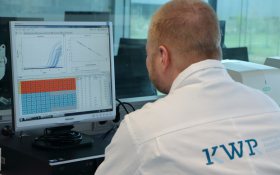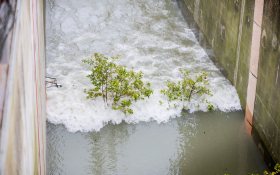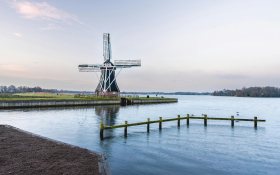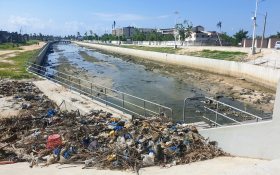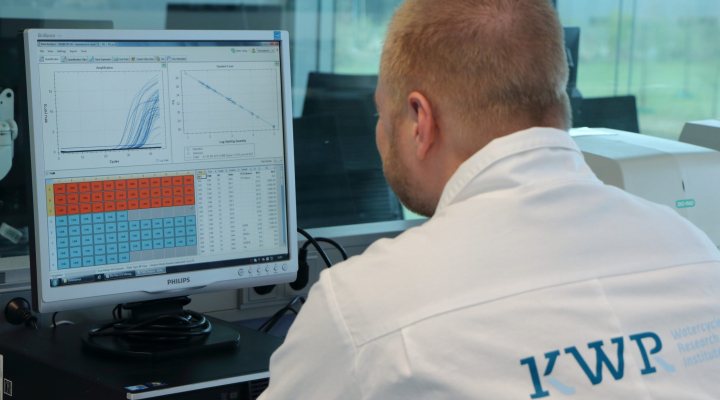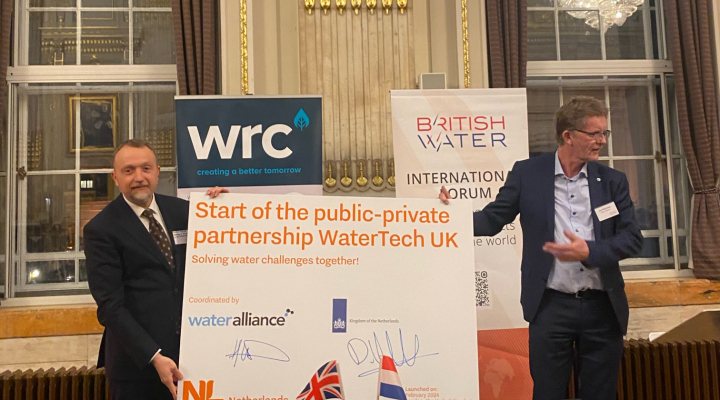
Royal couple opens vertical wastewater treatment pilot in New Delhi
King Willem Alexander and Queen Máxima of the Netherlands opened a pilot installation for the purification of the extremely polluted Barapullah Drain, one of the largest open sewers in New Delhi. Indian and Dutch scientists are developing robust technologies to purify wastewater locally, including a vertical treatment wall. The opening took place on 14 October as part of the King and Queen's state visit to India.


Polluted rivers
The Barapullah Drain is one of the largest open sewers in New Delhi. Every day, sewage of three million households flow untreated into the Yamuna River, that also serves as a water supply for irrigation and industry. The drains in the mega-city of New Delhi act as open sewers, causing health problems, stench and pollution of the river they discharge into.
Programme leader and research professor at Delft University of Technology, Merle de Kreuk said: 'Eventually the Yamuna flows into the Ganges and we’ve all seen those images. A polluted Ganges is a threat to the health of everyone who depends on it for water'.
Robust urban sewage treatment
The opening act marked the start of the second phase of Local Treatment of Urban Sewage Streams for Healthy Reuse (Lotus-HR), a programme for multidisciplinary cooperation centred around a pilot facility in Delhi. Within this programme, Dutch and Indian partners are developing robust technologies to purify wastewater locally and to recover raw materials for local use, while paying extensive attention to health aspects.
Vertical garden planters
The vertical treatment wall that was put into operation by the Dutch Royal couple is a good example of the new technologies the Lotus-HR programme is aiming at. Inspired by the increase in vertical gardens in megacities, Professor Merle de Kreuk and researcher Steef de Valk came up with the idea of creating a vertical small-scale wastewater treatment plant. Delft and Indian students have worked on this idea together.
The wall consists of a six-metre-high scaffolding with six long planters hanging from it. The dirty water is pumped upwards and then flows back down through the planters as if in a kind of rolling ball track. The plant roots and the stone wool substrate now purify about 250 litres of sewage per day.


Living Lab
The test site in Delhi is not limited to Lotus-HR technologies. It has developed into a living lab where anyone can test water purification innovations under Indian conditions. Merle de Kreuk: ‘More and more companies are coming forward to do on-site experiments. Slowly but surely, it is becoming the location in Delhi where systems for decentralized purification can be tested.’
Partners
Lotus-HR is a collaboration between Dutch Research Council (NWO) and the Department of Biotechnology (DBT) of the Indian government.
Dutch research partners include IHE Delft Institute for Water Education, Wageningen University and Research, Netherlands Institute of Ecology (NIOO-KNAW) and Vrije Universiteit Amsterdam. Indian research partners include Indian Institute of Technology, Delhi (IITD), The Energy and Resources Institute (TERI) and National Environmental Engineering Research Institute (NEERI). Companies involved are Drainblock, Ipstar, Kilian Water, Nijhuis Industries, Greenyard, LEAF, the water laboratory, Waste, RIKILT, Heineken, Cityblob and Saxion Hogeschool.
